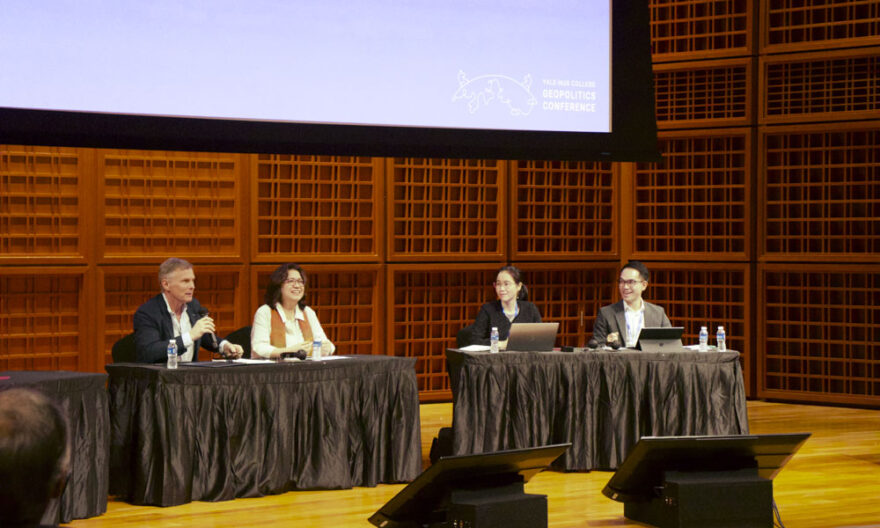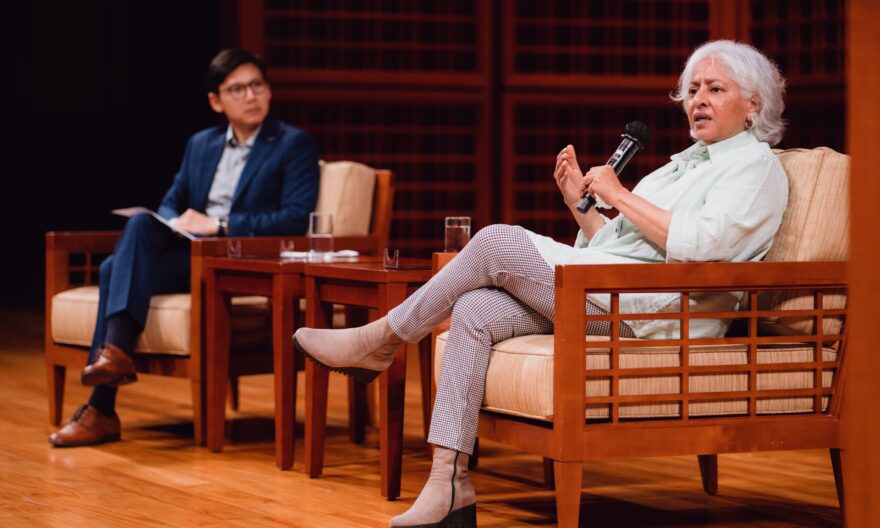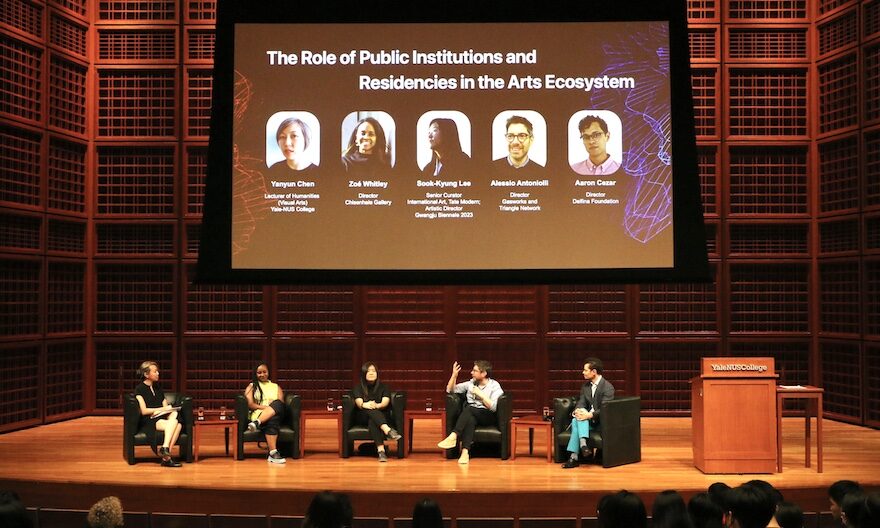Yale-NUS hosts the ‘International Academic Conference on Philosophy and Technology in Early China’

Image by Ilya Katrinnada bte Zubaidi.
Between 18 and 20 August 2017, the Chinese Studies Council at Yale-NUS College hosted the ‘International Academic Conference on Philosophy and Technology in Early China’ in partnership with the Needham Research Institute and the Department of East Asian Studies at the University of Cambridge.
Tan Chin Tuan Professor of Chinese Studies Scott Cook co-chaired the conference alongside the Director of the Needham Research Institute Professor Mei Jianjun, and the Joseph Needham Professor of Chinese History, Science, and Civilisation at Cambridge University Roel Sterckx.
The conference spanned three days, covering a diverse range of issues from cosmology and agronomy to musical and military technologies. Conference participants hailed from institutions all across the world, including Columbia University, Harvard University, Nanyang Technological University, and the University of Pennsylvania.
Professor Cook explained that the conference was the “natural outcome” of the global networking efforts of the Tan Chin Tuan Foundation, which sponsored the conference.
“While I’ve known Professor Roel Sterckx for a long time, and we had previously discussed the possibility of some sort of collaborative venture, the real direct impetus for this conference came when I had the chance to meet Professor Mei Jianjun in Singapore. He visited Singapore at the behest of the Tan Chin Tuan Foundation, an organisation that has contributed substantially to the Needham Research Institute,” he recounted.

Image by Yasunari Watanabe.
The three co-chairs decided on the theme of ‘Philosophy and Technology in Early China’ for several reasons.
“We came up with this theme not only because it ties in nicely with the mission of the Needham Research Institute and our respective institutions, but also because it is wonderfully interdisciplinary, and because Singapore itself is at the cutting edge of technological innovation and implementation,” Professor Cook explained.
The College’s newly minted Kwan Im Thong Hood Cho Temple Professor Bryan Van Norden was also among the conference presenters, speaking on a panel titled ‘Morality, Automation and Logical Disputation’. Another Yale-NUS faculty, Assistant Professor of Political Science Elton Chan, also chaired a panel titled ‘Grains, Spirits, and the Philosophy of Production’.
Meanwhile, Professor Cook presented a paper titled ‘Technology in a New Key: Toward a Re-examination of Musical Theory and Practice in the Zeng Hou Yi Bells’. He explained that music theory in early China was quite sophisticated and that his paper explored in greater detail the musical theory and practice of that period, a topic that he was deeply interested in.
“The Zeng Hou Yi bells represent the height of musical technology in early China—a set of 65 bells, each capable of producing two distinct tones, and each with self-describing inscriptions indicating the pentatonic function of its notes within several of the 12 different keys,” he explained.
“In my PhD dissertation written over 20 years ago that focused on the philosophical side of musical discourse in early China, I had only scratched the surface of what these inscriptions might reveal about musical theory and practice in early China. As such, I viewed this paper as an opportunity to delve much deeper into the rich possibilities afforded by these inscriptions—and through it, I have come to learn a lot more about early experimentation with non-standard pentatonic scales, unique attempts at a kind of “just intonation”, and other technological innovations that still require a lot more unpacking.”
According to Professor Sterckx, the study of technology in the past “should encourage us to reflect on its value today”.
Professor Sterckx’s research interests lie in the cultural ecology of pre-modern China, which refers to the study of how people of that time interacted with their natural environment and how this impacts how they viewed themselves as well as the world around them.
“Technological advances and innovation generally improve our quality of life, but they also leave groups of people in society uncomfortable and alienated, as not all technology is available or comprehensible to all. When you look back at ancient China, there are moments when technological innovation (such as iron tools, the plow, etc.) did not benefit all and left many peasants dependent on landlords and those who controlled agricultural tools,” he explained.
“One contemporary question the ancient Daoist philosophers would have for us would be whether the constant chase for technological innovation makes us happier at all. Happiness does not always equal efficiency.”
The conference was open not only to faculty but also students, especially those who have a keen interest in China and early Chinese studies. One such student was Tay Jun Hao (Class of 2019), who was drawn to the conference by its interesting areas of research and varying perspectives.
“I am primarily interested in archaeology and antiquity, so this conference about philosophy and technology in early China became a must for me to attend,” he noted.
“In addition, at the previous courses I took in Yale-NUS, I read the works that were written by some of the scholars present in the conference, and naturally I was excited to be able to meet them and to engage with what they are currently researching and working on.”
A history major, Jun Hao is planning to study a newly launched minor programme in Global Antiquity. “Although I am not planning to minor in Chinese studies, early China is an area that is extremely important to look at with regard to global antiquities,” he shared.
Professor Cook and the Yale-NUS Chinese Studies Council had previously organised a similar conference on Excavated Manuscripts in Chinese Classical Studies in partnership with the Center for Research on Chinese Excavated Manuscripts and Paleography of Fudan University (Shanghai).
The International Academic Conference on Philosophy and Technology in Early China was supported by the Tan Chin Tuan Chinese Culture and Civilisation Programme at Yale-NUS College. The Tan Chin Tuan Professorship in Chinese Studies and the Tan Chin Tuan Chinese Culture and Civilisation Programme were established to honour a larger-than-life individual, whose legacy of philanthropy is transforming lives even today through the Tan Chin Tuan Foundation. The Programme aims to increase the understanding of China and Chinese culture among Yale-NUS students. The Foundation has also supported the Chinese Language Scholarship under its Chinese Culture & Civilisation Programme.





